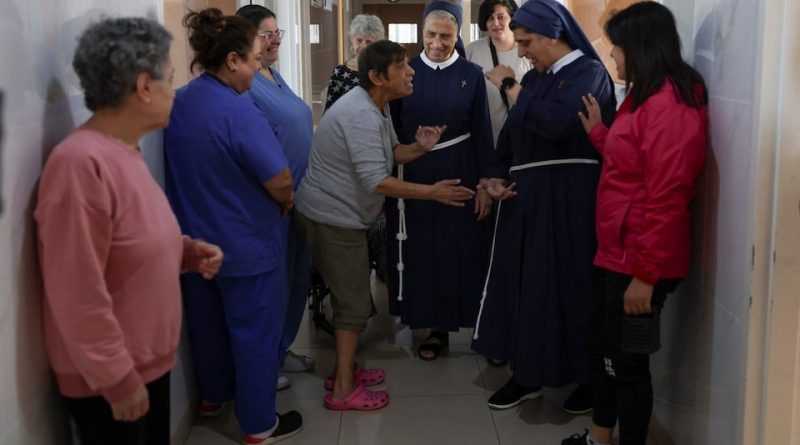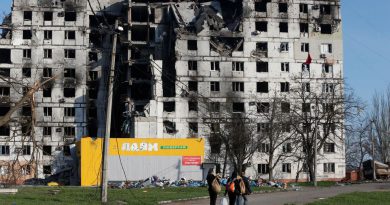Pope’s Visit Brings Renewed Attention to Lebanon’s Forgotten Psychiatric Patients
Jal El Dib – Staff at De La Croix Psychiatric Hospital in Jal El Dib say the upcoming visit by Pope Leo has brought new hope to both caregivers and residents, many of whom have spent years feeling overlooked by society and disconnected from family support that remains rare for psychiatric patients in the country.
Founded in 1952, De La Croix is among the few specialized mental health institutions in Lebanon, operating in a system where psychiatric illness still carries a strong social stigma and where state hospitals struggle with chronic underfunding, limited resources, and increasing demand for long-term care.
The hospital is operated by nuns from the Franciscan order who care for nearly 800 residents, ranging from individuals with lifelong psychiatric conditions to those who were abandoned due to financial hardship or social prejudice, making the facility a crucial refuge for people with nowhere else to turn.
Pope Leo is scheduled to visit the hospital on December 2 as part of the final day of his first international trip, prompting staff, volunteers, and patients to prepare the building with fresh paint, new decorations, and a special choir composed of around 50 residents who have been practicing for weeks.
Caregivers say the visit carries emotional importance, not only because it brings global attention to their work, but also because it gives residents a sense of dignity and visibility, especially as many have lived without consistent family visits or acknowledgment from society at large.
Sister Rose Hanna, one of the leading caretakers, expressed gratitude that the visit signals compassion for a group often pushed to the margins, noting that many patients experience long periods with no outside contact and depend heavily on the hospital’s staff for emotional and daily support.
For decades, De La Croix has survived political instability, regional crises, and fluctuating economic conditions, yet staff say the last six years have been the most difficult as Lebanon’s financial collapse, the pandemic, and two years of ongoing conflict placed significant pressure on the institution’s ability to function.
The hospital has been left to operate with minimal state assistance, receiving only $15 per patient per day from public funds, while the actual cost of providing full care—covering medical needs, food, housing, and support services—reaches nearly $75 per day, creating a gap that staff describe as nearly impossible to bridge.
Despite these challenges, residents continue to find comfort in routine activities, gathering in shared rooms to paint, spending quiet time in hallways, and assisting one another during daily tasks, while nurses and nuns maintain a warm atmosphere that many describe as the hospital’s emotional backbone.
Doctors coordinating the visit say the upcoming moment is deeply meaningful for the residents, as it symbolizes acknowledgment that they exist, that their voices matter, and that their struggles deserve understanding and compassion at a time when mental health services remain overshadowed by broader national crises.
Mother Marie Makhlouf, the congregation’s general superior, said the Franciscan Sisters are preparing to welcome the Pope with sincerity and humility, believing the visit brings not only attention but also spiritual encouragement at a moment when the institution has been fighting to sustain itself through overwhelming obstacles.
She noted that the caregivers have relied heavily on community support, charitable contributions, and what they describe as a deep sense of faith to continue meeting the needs of hundreds of vulnerable individuals, especially during a period when the country’s health infrastructure has been strained to its limits.
The visit, she said, serves as a reminder that their work is valued and that their mission to preserve dignity, offer shelter, and provide compassionate care carries meaning beyond the walls of the hospital, reinforcing their resolve to continue despite financial pressures and uncertain circumstances.
As the hospital prepares for the historic moment, staff and residents view the visit as a sign that their efforts and their lives are not forgotten, offering renewed encouragement to a community that has long struggled to be seen, heard, and supported.



